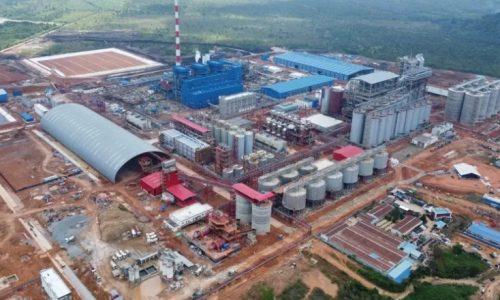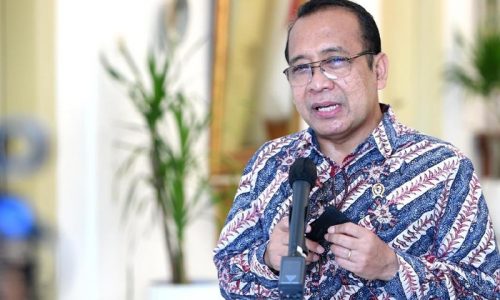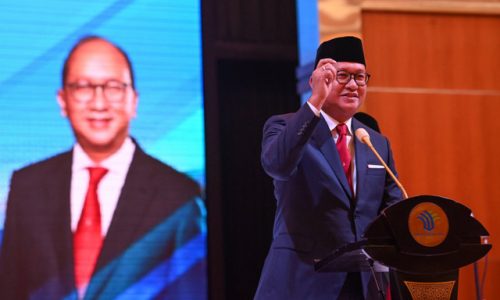Rhenus Logistics Indonesia has shown interest to take part in Indonesia’s megaproject to relocate its capital from Jakarta to Nusantara new capital (IKN) in East Kalimantan. The company, which is part of the German-based Rhenus Group, plans to use its expertise in domestic seafreight movements for the project.
Rhenus Group is one of the leading logistic specialists with an annual turnover of €7 billion and 970 business sites around the world. In Asia Pacific, the group spreads its business in 14 countries, including Indonesia. Currently, Rhenus Indonesia has four offices in Jakarta, Semarang, Surabaya and Medan.
Interest in new capital project
“It [the capital relocation] is a decades-long project, where we see increased domestic freight and international freight opportunities,” Rhenus Group CEO Tobias Bartz told journalists, invited by the Konrad Adenauer Stiftung, on the sideline of the Asia-Pacific Conference of German Business in Singapore on November 14, 2022.
“This is especially true for project based business related to construction of the new capital to support moving government administration functions to the area.”
“In the short run, Rhenus Indonesia will certainly be able to use its expertise in domestic seafreight movements and in the long run international freight as Nusantara’s local economy expands its renewable energy and tourism markets,” he added.
Read also: Indonesia develops green energy for new capital city
President Joko Widodo decided to relocate the capital city from the metropolis Jakarta to Nusantara, located in underdeveloped Sepaku district in North Penajam Paser regency, East Kalimantan. The US$ 32 billion megaproject already received doubts that it would materialize due to uncertainty over funding.
The 265.14-hectare Nusantara, which means the “archipelago”, will house state institutions and 1.5 million civil servants, who are scheduled to conduct their services beginning 2024.
Opportunities in Indonesia
Bartz explained that Rhenus had very aggressive growth plans. The company is continuing organic growth in existing markets with an aim to double in size by 2025.
“Rhenus Indonesia has been preparing for this by developing a solid organizational structure to support expanding our local footprint. We are seeing growing interest in the eastern part of Indonesia, specifically Sulawesi,” he said.
Bartz said the government has been implementing systematic infrastructure improvements in Makassar, the capital of South Sulawesi, and setting up special economic areas in the island to promote business growth.
Statistics Indonesia (BPS) and Supply Chain Indonesia (SCI) estimated that in 2021, the logistics sector contributed IDR 676 trillion to Indonesia’s gross domestic product (GDP). SCI predicted that in 2022 the logistics sector will see a 1.08% growth over 2021. It is estimated that the market value of the sector will reach IDR 699.1 trillion.
Challenges
According to Bartz, the company has been facing challenges in doing business in Indonesia. Among them are a challenging infrastructure for domestic inter-island movements, complex tax regulations that affect the logistics industry and the move towards carbon neutral solutions within Indonesia.
He also mentioned that cross country legislation was one of the challenges. As a comparison, he said the customs in Singapore, Malaysia and Thailand already have worked well in dealing with cross country logistics.
Apart from these challenges, Indonesia had been facing lack of containers which caused delays in delivery, as mentioned by Minister of State-Owned Enterprises (BUMN) Erick Thohir in 2021. Thohir said that global trade pressure due to the implementation of a number of trade war protectionism policies and increased taxes as another challenge.
Editor’s note: The article has been updated.









